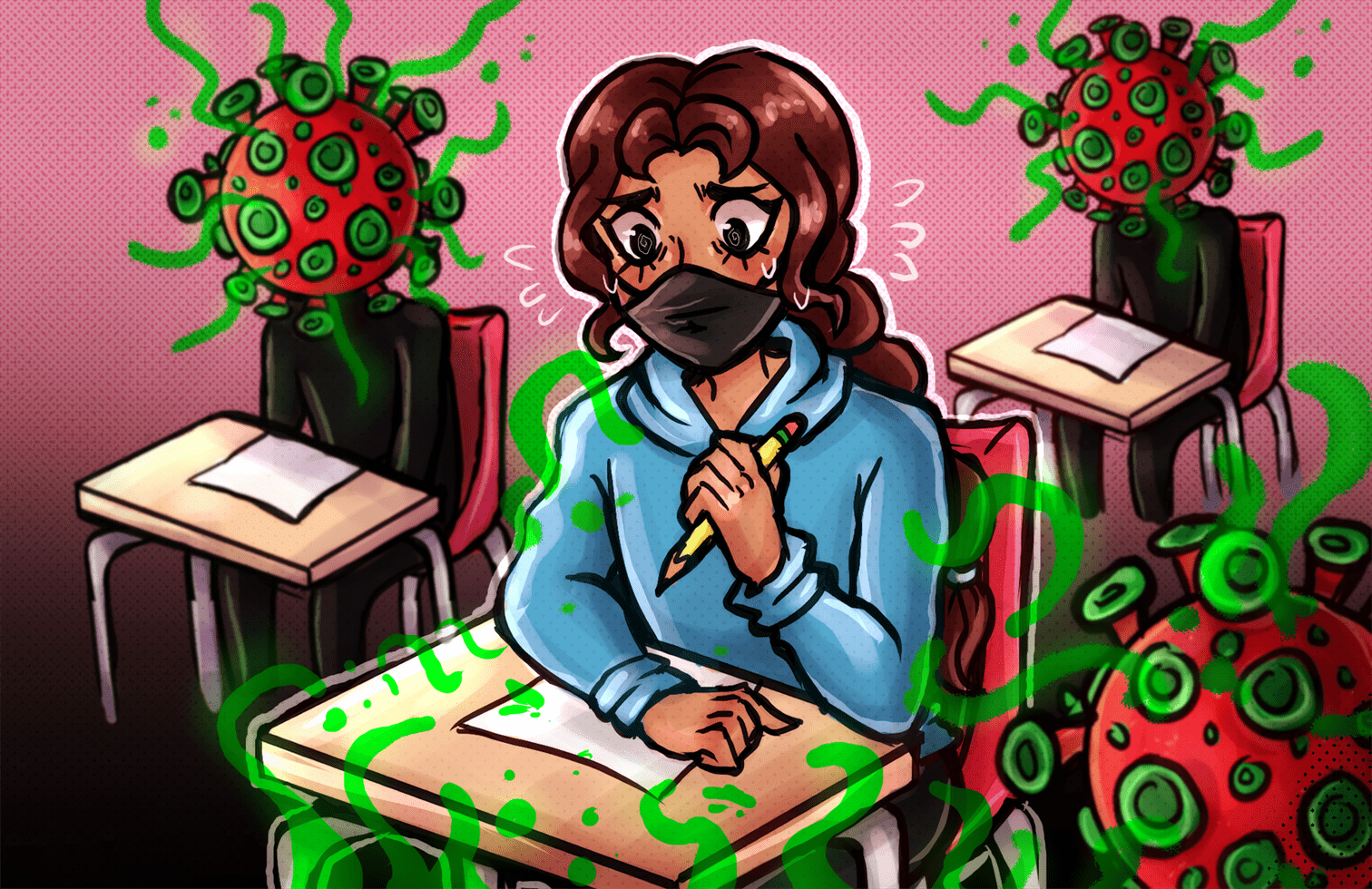After a largely successful in-person fall semester, Montclair State University seemed to be navigating the coronavirus (COVID-19) pandemic with relative ease. But as the chill of winter closed in, so did the omicron variant, and it is impossible to pretend everything is still going quite as smoothly.
Until recently, many people thought they were on sturdier ground than in the fall of 2020, and in many ways, this was true. Montclair State saw a smooth return to in-person learning thanks to a community-wide effort to keep others safe and healthy, and cases remained low throughout the fall.
Now, after yet another holiday season marred by COVID-19 infections, a shortage of tests and canceled New Year’s plans, that stability is waning.
On Jan. 11, New Jersey Gov. Phil Murphy declared a state of emergency due to the rapid spread of the omicron variant. At Montclair State, cases amongst students had been increasing since December 2021; there are currently 79 student cases and 96 total that have been reported, which follows a week in which 165 total cases were reported.
Despite this alarming spread, the university seems to be confident in its ability to run the same smooth operation it did over the last semester. Like other universities, Montclair State has mandated all students receive a COVID-19 booster shot or complete weekly testing. Aside from this measure and stating they are carefully monitoring the situation, which should be a given, little is being done differently.
Many students are anxiously wondering if at least a brief return to virtual learning might be for the best given the current situation. But Montclair State, after providing no updates over winter break regarding plans for the spring semester until the week before the start of classes, is insisting on in-person modalities for most courses. Additionally, residential students were told they needed a negative PCR test to return to campus, and with tests in short supply nationwide once again, this may prove difficult.
The omicron variant has destabilized an already fragile semblance of recovery. On one hand, it is milder than other strains of COVID-19 and usually doesn’t require hospitalization. On the other, even vaccinated people are being infected with the variant, and certain members of the population, like the elderly, children and immunocompromised people, are no less vulnerable than they were before.
Plus, the long-term effects of any COVID-19 infection seem to be manifold, even in mild cases like those caused by the omicron variant. In other words, there is still a need for precaution.
The insistence on solely in-person instruction is not a better or more preferable absolute than solely virtual, especially not when one option is inherently safer. This is not about absolutes at all, but about flexibility and providing options. There are pros and cons to each modality, and ideally, students should be able to choose which is best for them.
Is there a good reason Montclair State can’t resort to virtual learning for even a couple of weeks? Surely there’s no downside to giving everyone time to get tested and recover from any potential illness if need be, not if students are truly the priority.
Any short-term gratification from “keeping things moving” is simply not worth the potential risk of even more COVID-19 infections on campus. Avoiding a downward slide is much easier than getting out of one, and now is not the time to take chances for the sake of maintaining a semblance of normalcy.
The health and safety of Montclair State’s community should not be at the mercy of decisions made on their behalf and without their input. The Montclarion will continue to hold the university accountable for its actions, especially when it comes to the well-being of the student body.



